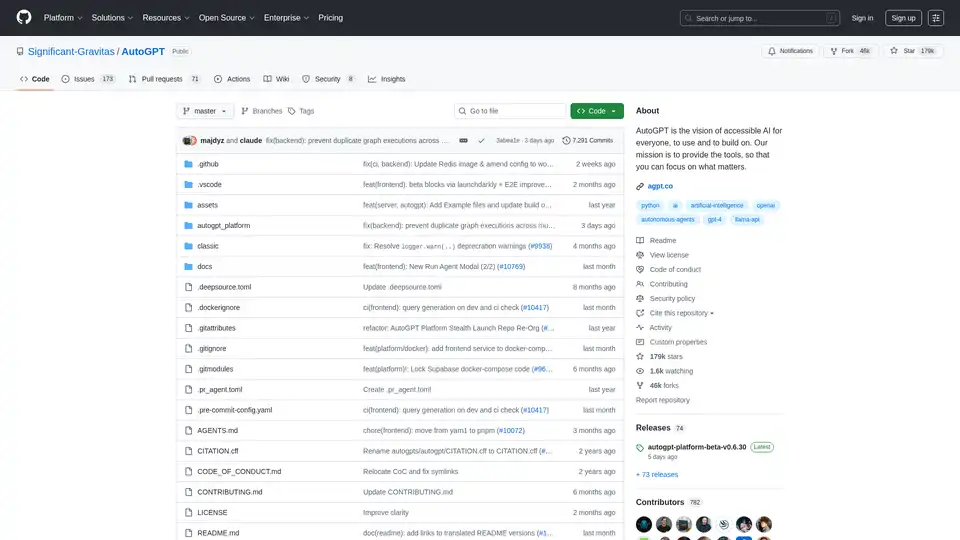AutoGPT
Overview of AutoGPT
AutoGPT: Build, Deploy, and Run AI Agents
AutoGPT is an open-source platform designed to empower users to create, deploy, and manage continuous AI agents that automate complex workflows. With AutoGPT, you can build customized agents or leverage pre-configured ones to streamline various tasks.
What is AutoGPT?
AutoGPT is a powerful tool that allows you to create AI agents that can automate tasks. It provides a platform where you can build, deploy, and manage these agents to optimize workflows.
How does AutoGPT work?
AutoGPT works by allowing users to define custom AI agents or utilize pre-built agents. These agents can be triggered by external sources and operate continuously, automating various processes. The platform consists of the following components:
- Agent Builder: Design and configure AI agents with a low-code interface.
- Workflow Management: Build, modify, and optimize automation workflows.
- Deployment Controls: Manage the lifecycle of agents from testing to production.
- Ready-to-Use Agents: Select from a library of pre-configured agents.
- Agent Interaction: Run and interact with agents through a user-friendly interface.
- Monitoring and Analytics: Track agent performance and gain insights for continuous improvement.
Key Features and Benefits
- Customizable AI Agents: Tailor AI agents to meet specific needs using an intuitive, low-code interface.
- Workflow Automation: Automate complex tasks by building, modifying, and optimizing workflows with ease.
- Lifecycle Management: Seamlessly manage agents from testing to production.
- Pre-configured Agents: Quickly deploy pre-built agents from the marketplace.
- User-Friendly Interface: Easily interact with agents and monitor their performance.
- Continuous Operation: Agents can be triggered by external sources and operate continuously.
How to Use AutoGPT?
There are two primary ways to use AutoGPT:
- Self-Hosting:
- Download the platform and host it yourself.
- Follow the official self-hosting guide for detailed setup instructions.
- Ensure your system meets the hardware and software requirements.
- Cloud-Hosted Beta:
- Join the waitlist for the cloud-hosted beta (currently in closed beta).
- This option provides a hassle-free experience with managed hosting.
System Requirements for Self-Hosting
To self-host AutoGPT, ensure your system meets the following requirements:
- Hardware:
- CPU: 4+ cores recommended
- RAM: Minimum 8GB, 16GB recommended
- Storage: At least 10GB of free space
- Software:
- Operating Systems: Linux (Ubuntu 20.04+), macOS (10.15+), Windows 10/11 with WSL2
- Docker Engine (20.10.0+)
- Docker Compose (2.0.0+)
- Git (2.30+)
- Node.js (16.x+)
- npm (8.x+)
- VSCode (1.60+) or any modern code editor
- Network:
- Stable internet connection
- Access to required ports (configured in Docker)
- Ability to make outbound HTTPS connections
Why Choose AutoGPT?
AutoGPT stands out due to its flexibility and comprehensive features for AI agent management. Whether you prefer building custom agents or using pre-configured solutions, AutoGPT offers the tools needed to automate complex workflows. By providing options for both self-hosting and cloud-based deployment, AutoGPT caters to various user preferences and technical expertise levels.
Who is AutoGPT for?
AutoGPT is ideal for:
- Developers looking to automate repetitive tasks.
- Businesses aiming to streamline workflows and improve efficiency.
- AI enthusiasts interested in building and experimenting with AI agents.
- Researchers seeking a platform for testing and evaluating AI models.
Real-World Applications
- Generate Viral Videos from Trending Topics: Automate video creation based on trending content from platforms like Reddit.
- Identify Top Quotes from Videos for Social Media: Transcribe videos, identify impactful quotes, and generate social media posts automatically.
These examples showcase the versatility of AutoGPT in creating customized workflows for various use cases.
AutoGPT Classic, Forge, and Benchmark
AutoGPT also includes classic versions and tools like Forge and agbenchmark:
- AutoGPT Classic: The original stand-alone AutoGPT Agent.
- Forge: A toolkit for building custom agent applications.
- agbenchmark: A testing environment for evaluating agent performance.
License Information
The AutoGPT repository is licensed under two primary licenses:
- Polyform Shield License: Applies to code and content within the
autogpt_platformfolder. - MIT License: Applies to all other portions of the repository, including AutoGPT Classic, Forge, and agbenchmark.
Contributing to AutoGPT
AutoGPT welcomes contributions from the community. To report bugs or request features, create a GitHub Issue. Ensure that your contribution adheres to the project's guidelines and code of conduct.
AutoGPT is at the forefront of AI innovation, providing the tools necessary for building, testing, and delegating tasks to AI agents. Join the revolution and explore the possibilities of automated workflows with AutoGPT.
What is AutoGPT? It is an open-source platform for building, deploying, and managing AI agents. How does AutoGPT work? It enables users to define custom AI agents or use pre-built ones, automating processes continuously. How to use AutoGPT? You can either self-host the platform or join the waitlist for the cloud-hosted beta. Why choose AutoGPT? Because it offers flexibility, comprehensive features, and caters to various user preferences. Who is AutoGPT for? It is ideal for developers, businesses, AI enthusiasts, and researchers. Best way to automate workflows? By leveraging AutoGPT's customizable and pre-configured AI agents.
Best Alternative Tools to "AutoGPT"
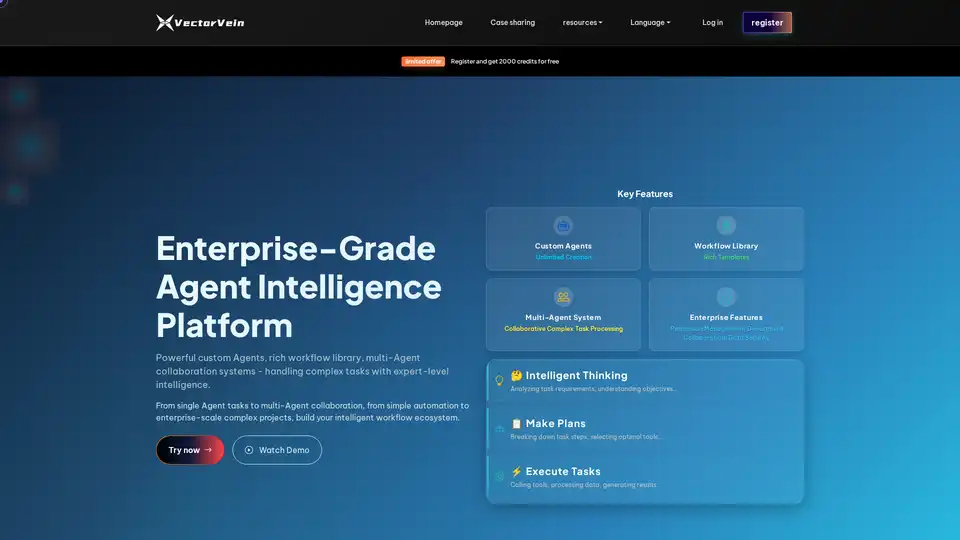
VectorVein is an AI Task Agent platform enabling intelligent automation of complex tasks. Features custom Agents, workflow library, multi-Agent collaboration, and enterprise-grade security. Automate tasks with intelligent thinking and execution.

Lunary is an open-source LLM engineering platform providing observability, prompt management, and analytics for building reliable AI applications. It offers tools for debugging, tracking performance, and ensuring data security.
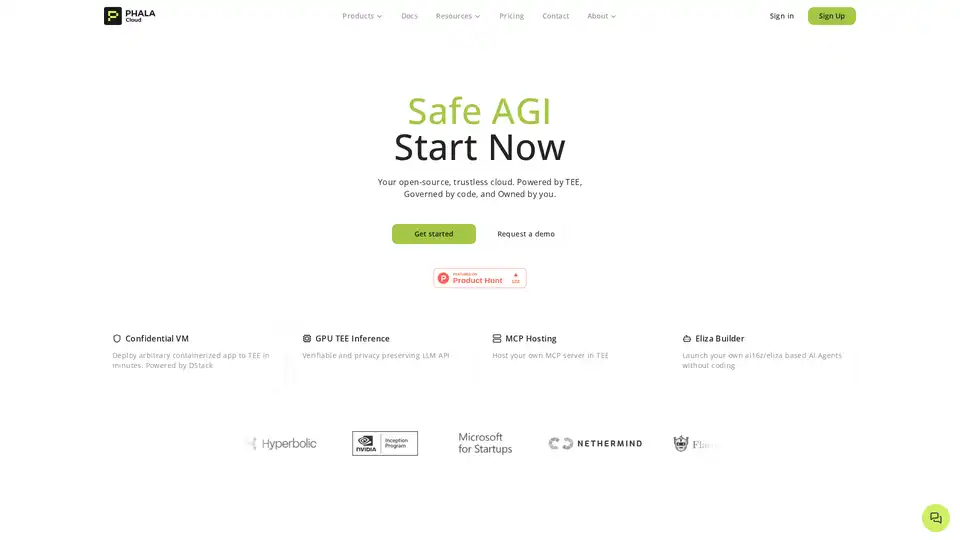
Phala Cloud offers a trustless, open-source cloud infrastructure for deploying AI agents and Web3 applications, powered by TEE. It ensures privacy, scalability, and is governed by code.

Simular AI delivers open-source intelligent agents that automate computer tasks, streamline workflows, and enhance productivity across desktop, browser, and mobile environments.

Findnlink is an AI-powered virtual space that transforms ideas into reality by generating logos, project descriptions, tasks, and connecting you with collaborators. Ideal for innovators seeking efficient project launch and team building.
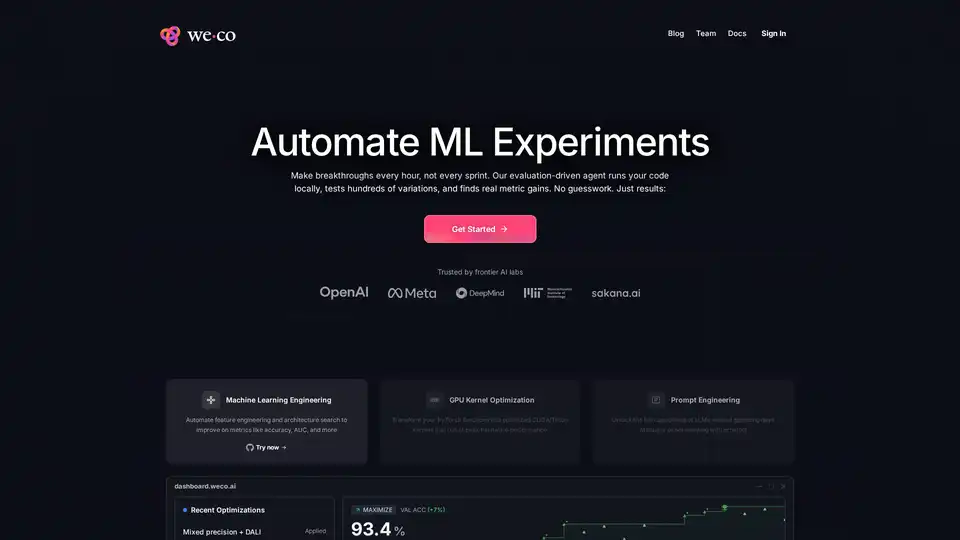
Weco AI automates machine learning experiments using AIDE ML technology, optimizing ML pipelines through AI-driven code evaluation and systematic experimentation for improved accuracy and performance metrics.
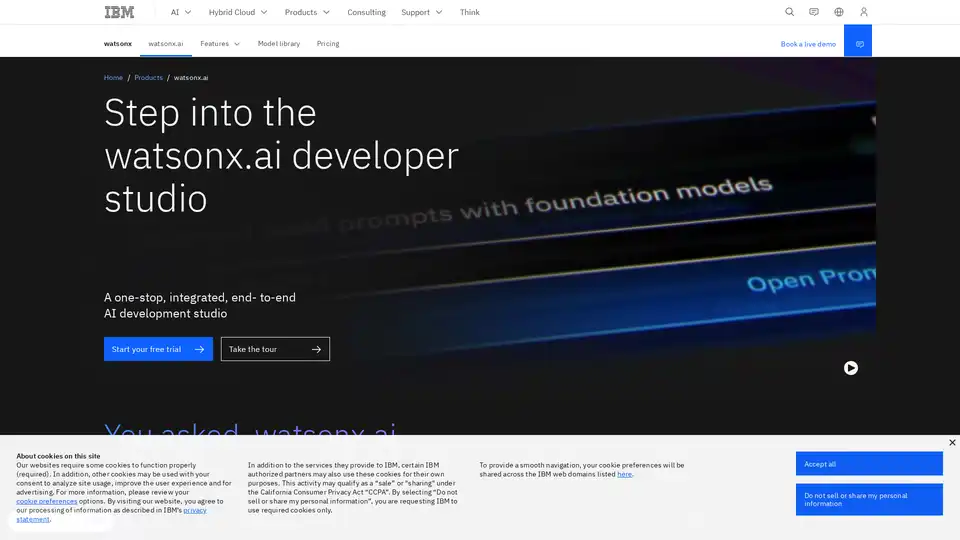
A next generation enterprise studio for AI builders to train, validate, tune and deploy AI models. Discover IBM watsonx.ai's integrated tools for scalable generative AI development.
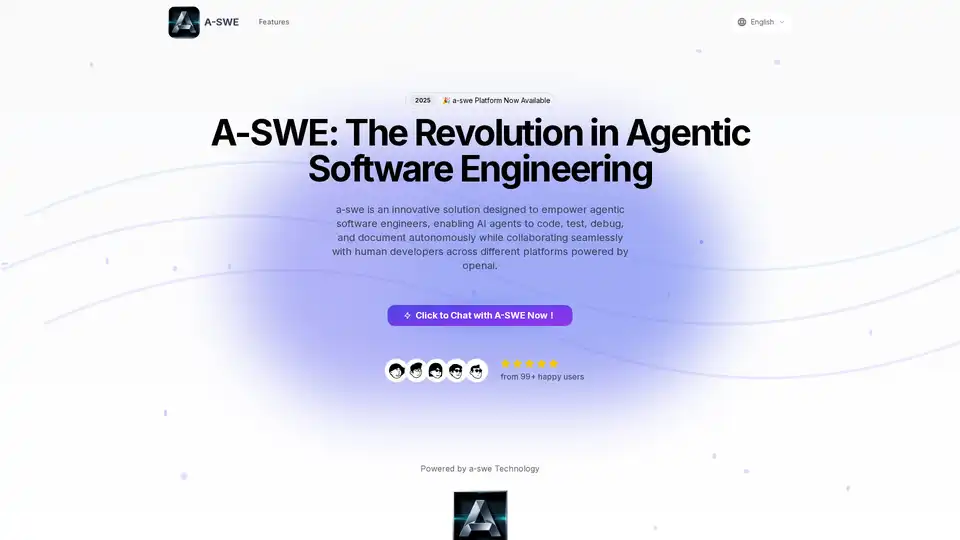
A-SWE is an AI platform designed to empower agentic software engineers, enabling AI agents to autonomously code, test, debug, and document, enhancing software development.

Only H2O.ai provides an end-to-end GenAI platform where you own every part of the stack. Built for airgapped, on-premises or cloud VPC deployments.
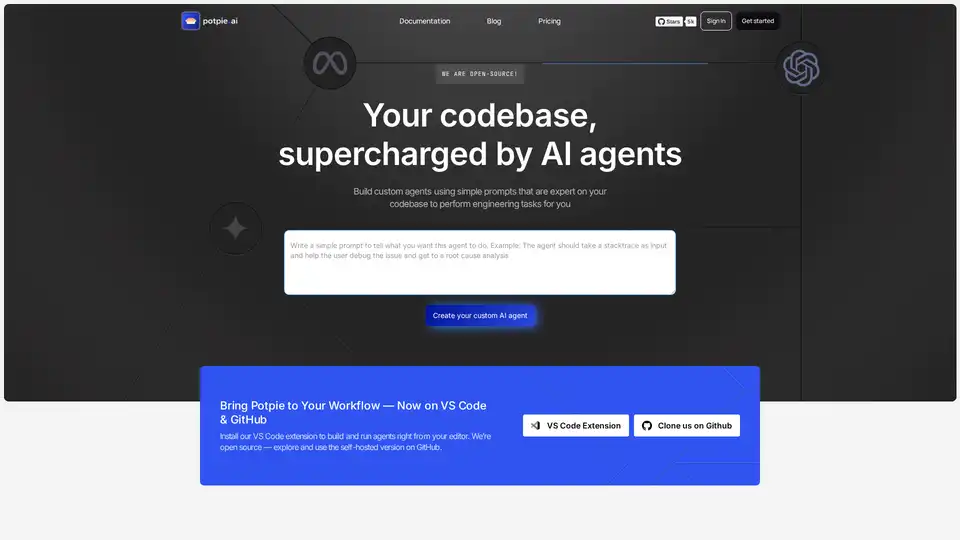
Build task-oriented custom agents for your codebase that perform engineering tasks with high precision powered by intelligence and context from your data. Build agents for use cases like system design, debugging, integration testing, onboarding etc.
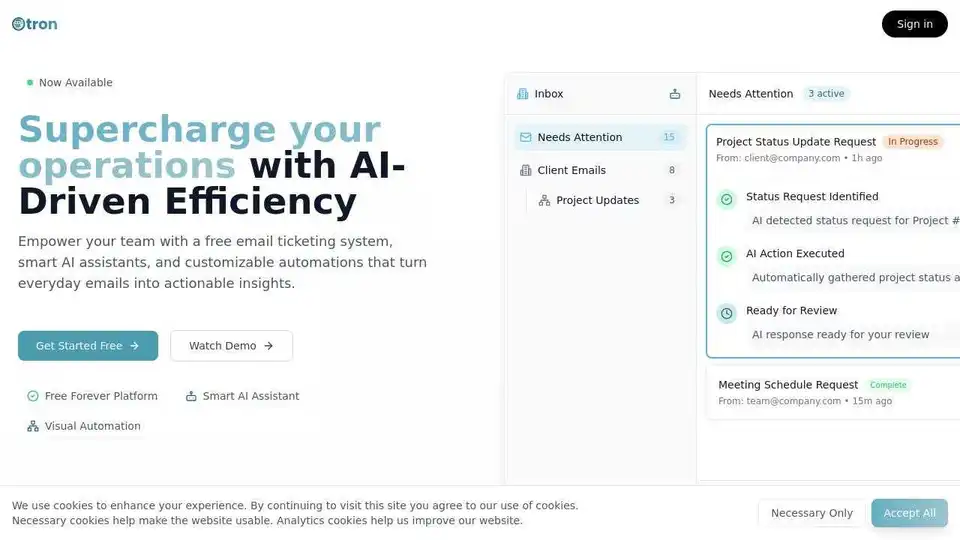
Otron is an open-source AI development agent that integrates with GitHub, Slack, and Linear to automate your development workflow with intelligent actions and persistent memory.
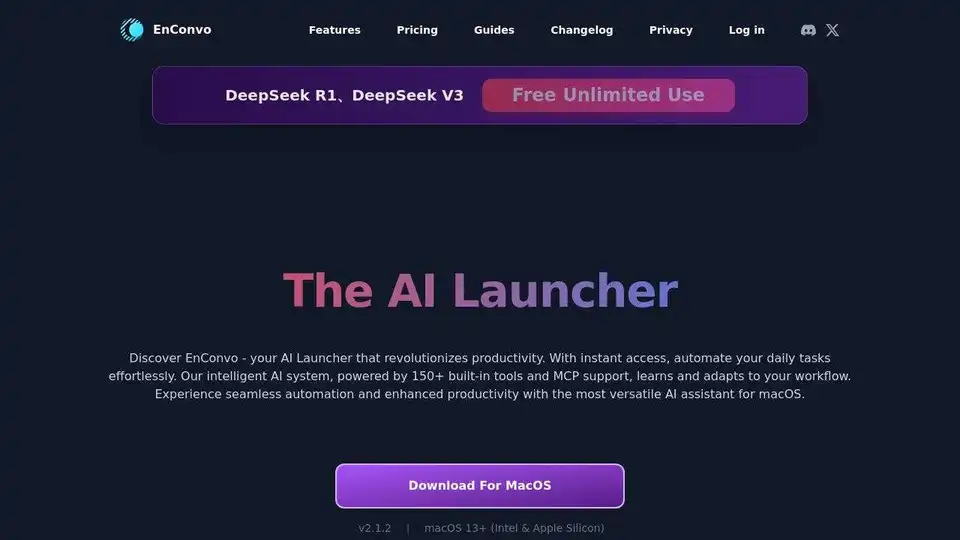
EnConvo is an AI Agent Launcher for macOS, revolutionizing productivity with instant access and workflow automation. Features 150+ built-in tools, MCP support, and AI Agent mode.

Mistral AI offers a powerful AI platform for enterprises, providing customizable AI assistants, autonomous agents, and multimodal AI solutions based on open models for enhanced business applications.
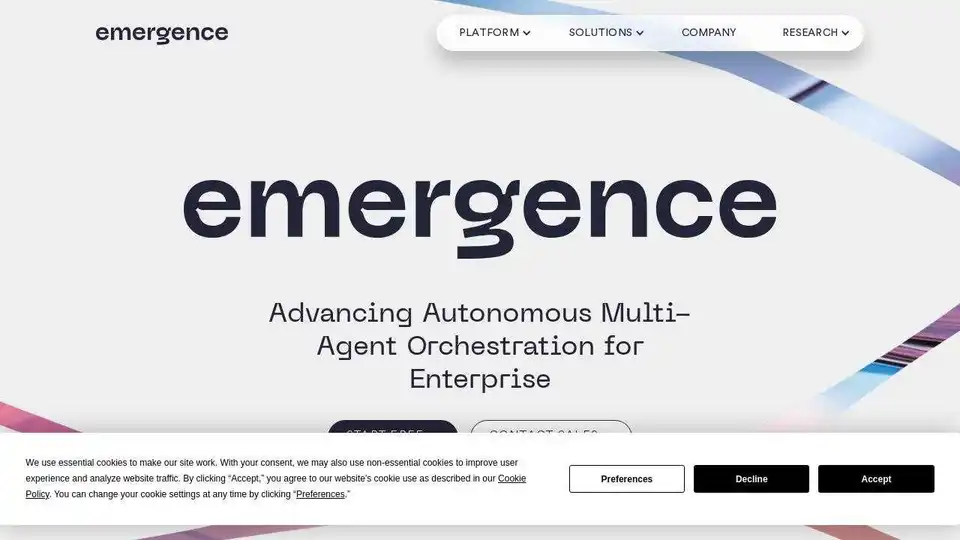
Emergence AI pioneers Agents Creating Agents—AI that builds, trains, and deploys other agents in real time for enterprise innovation. Autonomous intelligence with no setup or lag.
